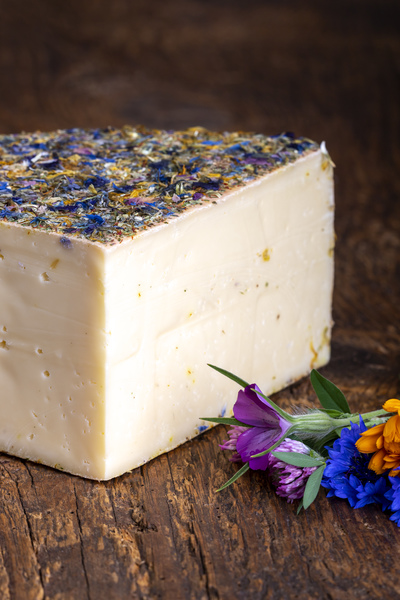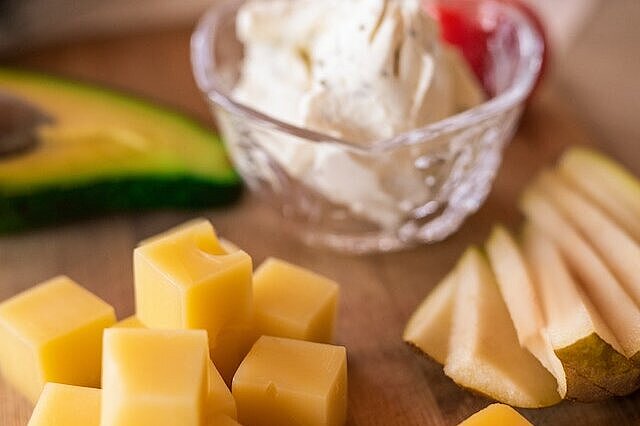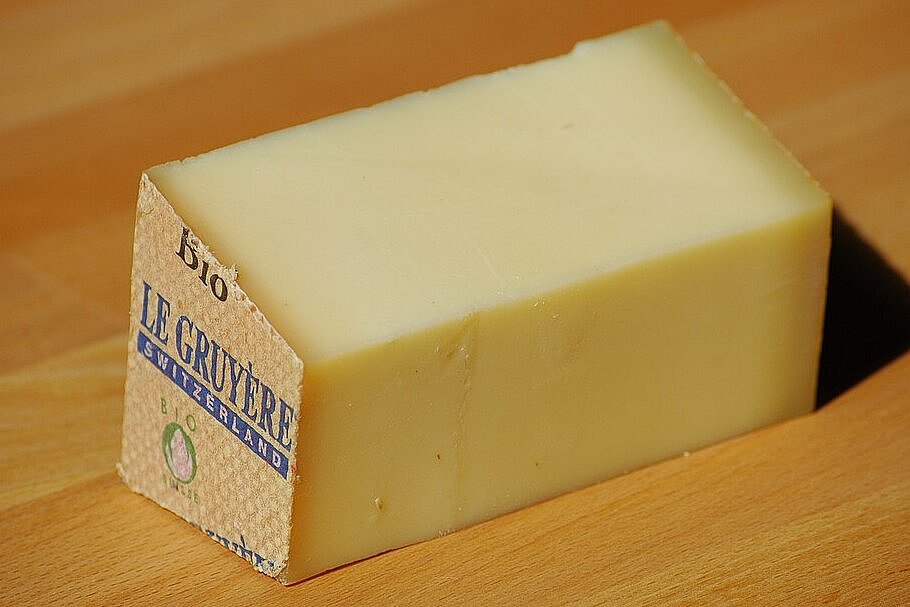Mountain cheese

Mountain cheese is a tasty cheese from the mountains. It is made from raw milk and has a strong flavor. Many dogs love cheese and tolerate it well. But is mountain cheese also healthy for your four-legged friend? In this article, you can find out more about the advantages and disadvantages of mountain cheese for dogs.
What is mountain cheese?
Mountain cheese is a collective term for various types of cheese produced in the Alps. This includes products from mountain farming, alpine pasture farming and milk processing by local producers in dairies. There is therefore no single type or production of mountain cheese. However, it is usually a hard or semi-hard cheese with few or no holes.
Mountain cheese is characterized by its high quality, as it is made from natural raw milk from cows that graze on lush meadows. The milk contains many valuable nutrients such as protein, fat, calcium and vitamins. In addition, mountain cheese is traditionally cheesed with natural ingredients such as rennet and salt and matures for a long time in special cellars or caves.
What are the benefits of mountain cheese for dogs?
Cheese is generally a good food supplement for dogs as it provides many nutrients and stimulates the sense of taste. Mountain cheese has some special benefits for dogs:
- It is rich in protein, which is important for muscle building and cell regeneration.
- It contains a lot of calcium, which is good for bones and teeth.
- It has a high fat content, which provides energy and makes the coat shiny.
- It has a low lactose content as it has been matured for a long time. This makes it better tolerated by dogs with lactose intolerance.
- It has an intense flavor that many dogs like.
What are the disadvantages of mountain cheese for dogs?
Mountain cheese is delicious and nutritious for dogs, but should only be fed in moderation. Too much mountain cheese can have some disadvantages:
- It can lead to obesity as it is very high in calories.
- It can lead to digestive problems if the dog has a milk protein allergy or is very sensitive to fat.
- The formation of gas in the intestines can lead to flatulence.
- It can contribute to tartar formation if it is not chewed thoroughly.
How much mountain cheese can my dog have?
The optimum amount of mountain cheese depends on various factors such as the dog's age, size, weight, activity and state of health. As a rule of thumb, one teaspoon per kilogram of body weight per day should not be exceeded. This means, for example, that a 10 kg dog should not eat more than 10 teaspoons (approx. 50 g).
Which mountain cheeses are suitable for dogs?
Not all mountain cheeses are equally suitable for dogs. Some criteria to consider are
- Fat content: The lower the fat content of the cheese, the better it is for your dog. Too much fat can lead to diarrhea or abdominal pain. For example, you can look for cheeses with a fat content of 30% or less.
- The maturing time: The longer the cheese is matured, the less lactose it contains. This makes it more tolerable for dogs with lactose intolerance or milk protein allergy. For example, look out for cheeses that have been matured for at least six months.
- Additives: The more natural the cheese, the better it is for your dog. Some cheeses contain artificial colors, flavors or preservatives that can harm your dog. Look out for organic cheese or cheese with a protected designation of origin (PDO), for example.
Some examples of mountain cheeses that are suitable for dogs
- Emmental: A Swiss hard cheese with large holes and a slightly nutty flavor. It has a fat content of 30% and a maturing period of at least four months.
- Cheddar: An English hard cheese with a strong, tangy flavor. It has a fat content of 30% and is matured for at least six months.
- Pecorino: An Italian hard cheese made from sheep's milk with a spicy, salty taste. It has a fat content of 25% and a maturing period of at least five months.
How do I give my dog mountain cheese?
Mountain cheese is not a main food for dogs, but a supplementary food or treat. You should therefore not use it as a substitute for normal dog food, but as a change or reward.
You can offer your dog mountain cheese in small pieces or mix it into the dog food. Make sure that the cheese is not too hard or too big so that your dog can chew and swallow it easily.
You can also make your dog homemade snacks with mountain cheese. For example, you can give him small bites of mountain cheese and apple or prepare a delicious casserole of mountain cheese and vegetables.
Mountain cheese is a tasty and nutritious snack for dogs that has many benefits. However, it should only be fed in moderation.
Properties 7
Are you looking for other ingredients with a specific property?
Just click on them to find more.
If you notice any signs of hypersensitivity or poisoning in your dog, you should see your vet immediately. We are not a substitute for a vet, but we try to be as accurate as possible. Every dog reacts differently and we recommend you get a second opinion or consult your vet if in doubt.
Stay healthy and take good care of your four-legged friend!😊
Similar to Mountain cheese
Emmental consists mainly of cow's milk, which is pasteurized and mixed with rennet and lactic acid bacteria. The cheese then matures for several months in cool cellars, where it develops its typical...
Gruyère is a hard cheese made from raw cow's milk. It comes from the canton of Fribourg in Switzerland and is named after the town of Gruyères. It has had a protected designation of origin (PDO)...
Appenzeller cheese is a semi-hard cheese (or semi-hard cheese) made from raw milk. It comes from the Appenzell region in north-eastern Switzerland, where it has been produced according to...
Gruyère is a hard cheese that originally comes from the Gruyère region of Switzerland. It is made from cow's milk and is characterized by a rich, creamy texture and characteristic holes. The...



